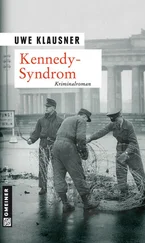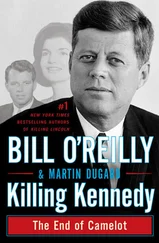D7 — that’s a troubling chord to form. It makes me all thumbs and no fingers.
Done D9. I can manage that, get into it quite smoothly. Which was worth it. I think. It’s useful. Sounds useful. But putting everything together … the transitions … and by myself … I have a book, but I am by myself …
I am aware that I’m no good.
But it is an outlet.
The traffic did not move.
His phone started ringing.
IT WASN’T LOST on Meg — the humour of steering herself about from one hospital to another, her semi-regular trips. Although the Hill wasn’t really a hospital and maybe only seemed like one because of her thinking and where she was with her life just at the moment.
Where she was this morning was a genuine hospital: mall-style food court with a range of options, frequent opportunities for hand sanitising, slick floors that seemed to anticipate the spillage of shaming fluids. There was none of the medical smell she still expected from medical buildings: the disinfectant reek that used to set the scene so unmistakably, used to make the whole of yourself clench, even if you were healthy. Nowadays you walked into any of these places and there was only an aroma of cheap coffee and beyond that perhaps the scent of a low-class office block or a cheap hotel. The overall banality of what you were inhaling made your surroundings seem less professional and therefore more frightening. And then maybe there were traces of something nastier that you didn’t quite catch, not fully, something to do with used bedding and uncontrolled decay.
And she was frightened — more in her body than her mind, but both communicated, she couldn’t prevent it. Back and forth, they whispered, they bled.
As she’d climbed the stairs — the lifts here always seemed unclean and were too obviously big enough to contain trolleys, biers, bodies — her muscles had seemed to soften and become unhelpful.
And then there was the form to sign and the multiple confirmations of her birth-date — as if she might have changed into somebody different from one end of each corridor to the other.
In the waiting room where she finally paused were the usual telly and posters pledging to do nice things very nicely and threatening that any violence would be met with prosecution. One woman was already there with — it was only a guess — her supporting male partner. A second outpatient sat between uniformed and, most likely, less supportive female warders. It took a moment to notice the second woman was handcuffed to the warder at her left.
The warders chatted desultorily. They wore cheap and shapeless black pullovers and trousers which were ill-fitting. They reminded Meg of a trip she made once to a number of foreign countries as a student — excursions involving unwise hopes for excitement. Those in authority — their uniforms, their slack pullovers — had seemed scary and shabby and odd in the same way as these guards. The more notorious the regimes, the more their uniforms gave the impression that power was power and was unmistakable, but rested, somehow, with amateurs who’d get things wrong and make a point of not caring about it when they did. The idea of possibly being oppressed by people who didn’t bother to iron their trousers seemed somehow to make the threat of harm more harmful, or just more insulting. It suggested the way that important things worked might not be logical, or civilised.
Handcuffs in a hospital didn’t seem civilised.
Fair enough, when it was time for the woman to head off and be examined, Meg watched as the unattached warder hooked out long-distance cuffs — a significant length of heavyish chain there between bracelets. It was tangled and the officer tutted while she sorted it out, shook it like a badly behaved length of washing line.
Meg made a point of meeting the prisoner’s eye in some effort at empathy. There was a moment of interchange, but it would have been hard to define what passed.
Solidarity.
You never know how you’ll end up. You never know, do you, whether you’ll be in civilian clothes and not look like a prisoner, but nevertheless be chained to a stranger who doesn’t talk to you and who will soon probably see you half naked and be watchful in case you try to run away. If you’re honest, you’ll admit how close bad stuff always is to you and even feel it brushing by your cheek.
Half naked and running away. Imagine.
The party was summoned — one prisoner and one prison officer — and twenty minutes dawdled by while those left behind — the other warder included — sat and let the telly explore current property values and opportunities for investment. The clock provided was louder than the TV.
Tick, tick.
Then there was the noise of doors opening and feet. The pair had been released — at least from the examination room — and sat on the chairs placed out in the hall, chatting now. It would, Meg supposed, be odd not to chat after having done what they had done together. She took the back and forth of it as a sign of civilisation. The prisoner spoke softly about unjust accusations and the officer’s replies were warm with amusement.
The next woman was called out, leaving her partner (still supportive) to wait behind.
Nice that he came with her.
Or weird that he came with her.
Or suffocating that he came with her.
That patient took twenty minutes, too, and then reappeared, gathered her man, held his hand. What must have happened to her meanwhile had left no visible trace.
The TV now spoke about a charity giving support to deserving cases, cancer cases.
And there was no cause for alarm — neither on screen, nor off.
Nothing beyond the usual causes for alarm.
This was no big deal.
And yet also a big deal, a big unavoidable deal, because Meg’s turn was next.
Breathe in faith.
Tick, tick.
Breathe out fear.
Tick, tick.
Doesn’t work.
‘Hello, Meg. My name’s Kate.’ That was the nurse. She was cheery, outdoors-looking, Caribbean and clean-handed, neat nails.
What I would say or do if she looked infectious, I can’t imagine. And she’s not going to touch me, anyway — the gynaecologist will touch me. I am just taking the nurse as a symptom of the regime and being optimistic, that’s the thing. I am not feeling powerless.
So. The nurse’s name was Kate and Meg’s name was Meg. And Kate’s knowing your name and you knowing hers couldn’t help but involve you in an admission that you were here and that you had to stay and had to go through it all again. You had to walk round and into the room, as if you were volunteering, as if you weren’t a good friend to yourself and wouldn’t dodge this all and run away.
But at least you knew Kate’s name was Kate.
And thank God she didn’t call me Margaret. Or Maggie. Being either of them for the whole of this would do me in, it would really.
‘You can hang your coat up on the hook there.’ Kate smiling and indicating a hook on the back of the door, as if its availability was great news and it was, indeed, a bit of a departure — you’re used to just piling everything on to the chair. That’s the chair which comes later. Within the track for the drawable curtain, behind which you undress, there always is a waiting chair.
You don’t remove your coat because you want it round you.
I don’t want to be here, not today.
There was another chair in here, over by the desk — in the administrative area of the examination room. This chair came first and so Meg sat down on it and answered questions offered by someone who was probably a student doctor and whose name escaped her when he said it — all long and fluttery and spoken in a gentle accent of some kind — unfamiliar. She couldn’t quite see the whole of his name badge. She guessed that he was perhaps Greek, or else hoped he was Greek for unexplained and irrational reasons.
Читать дальше












